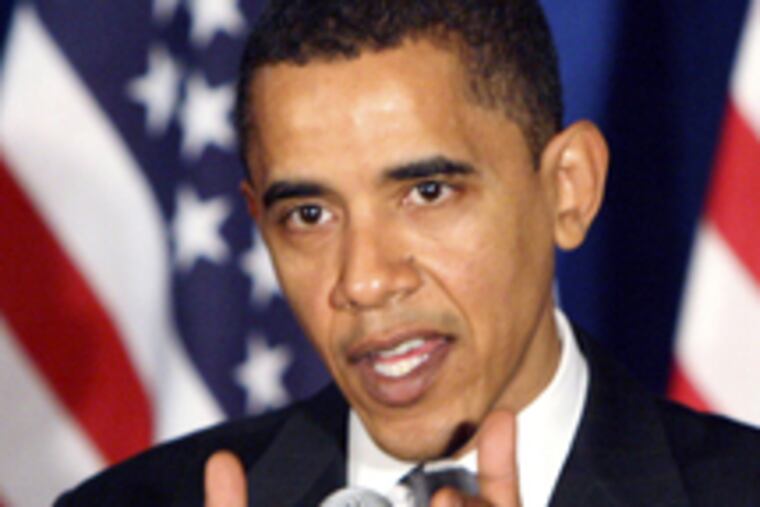John Baer: It's time to rethink primaries and let democracy rise
I HAVE TO CONFESS. The presidential primary season that just ended hit me - a practicing political cynic - as a remarkable bit of democracy.

I HAVE TO CONFESS.
The presidential primary season that just ended hit me - a practicing political cynic - as a remarkable bit of democracy.
We had a winter and spring of record turnout across the nation, a cycle of enthusiasm producing candidates outside the norm.
John McCain's a unique Republican who can appeal to Democrats and independents; Barack Obama's a Democrat offering a whole new day.
And people participated like never before.
A University of Minnesota study released last month shows increased turnout in 43 of 44 states for which comparable data was available.
Of the states studied, only heavily Republican Idaho showed no registration increase.
(I don't know. Potato-heads?)
Registration in 10 states rose by 10 percent or more.
Nevada and Indiana, for example, are up 20 percent; Arizona 18; North Carolina 14.
(Pennsylvania is up 7 percent.)
Based on the level of interest in primaries, my bet is it continues this fall.
So we should build on it.
We should acknowledge that democracy is on the rise and push for election reforms to further open and strengthen the process.
Like what?
How about improving primaries by dumping the current goofy system in favor of a more sensible one?
There are multiple plans: a national lottery of states to see who goes first; a series of groupings of small states and big states; states grouped by delegate strength, and more.
My personal favorite, endorsed by the Commission on Federal Election Reform and the National Governors Association, is a block of regional primaries from March to June that rotates every four years and allows (as a concession to tradition) Iowa and New Hampshire to go first.
But, speaking of Iowa, I also like the idea of ending caucuses in favor of primaries.
Caucuses, however cute, don't allow absentee votes and punish too many voters without the time or resources to attend, often including those in the military.
Primaries allow for greater participation.
So would improvements such as voting over weekends.
More important, however, is tying the Electoral College to a sensible, simple and democratic nationwide popular vote.
The current winner-take-all process in each state (in which one can win the most popular votes nationally but still lose the election) reduces too many states, and therefore their voters, to insignificance.
National Popular Vote, a nonprofit, California-based group pushing for every vote to count, says that in the '04 election candidates spent 99 percent of their money in just 16 states.
So it proposes that electoral votes be assigned to the candidate with the most popular votes from the 50 states and the District of Columbia - a true national election.
"Should someone's vote in North Carolina be worth the same as someone's vote in Ohio?" asks group president Barry Fadem, a California lawyer specializing in ballots issues and election law.
"We are talking about the most important election in the world," he says. "Whoever gets the bigger number, that's your winner."
The plan works off the constitutional power of states to determine how their electoral votes are awarded and the states' power to form interstate compacts, such as they do for stuff ranging from environmental programs to Powerball.
States pass legislation (four have done so: Hawaii, Illinois, Maryland and New Jersey) to join other states in awarding electoral votes to the popular vote winner.
This can happen only if enough states with the combined total of electoral votes needed to win the presidency (270) are in the compact.
Pennsylvania is among more than 40 states with legislation pending.
Like lots of good ideas, the measure here is stalled.
Still, democracy is on the rise. Be nice to ride it even higher. *
Send e-mail to baerj@phillynews.com.
For recent columns, go to